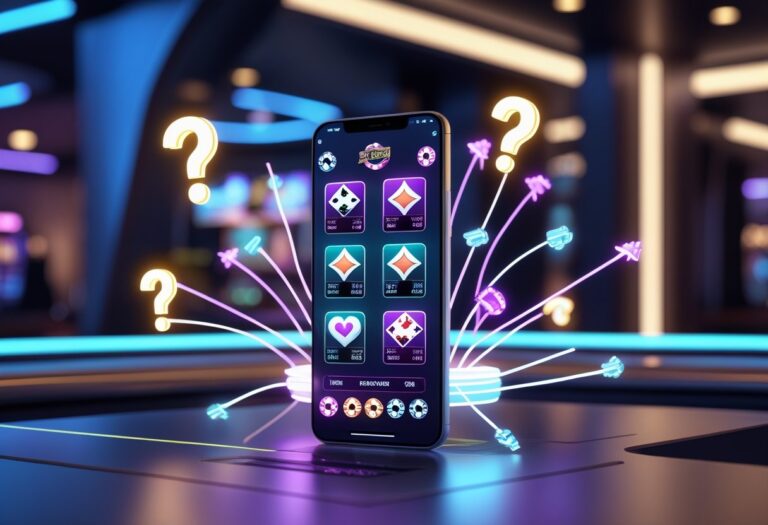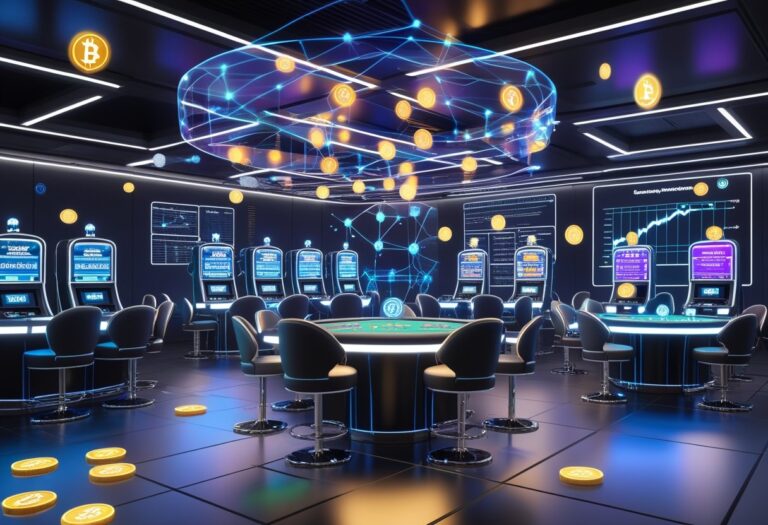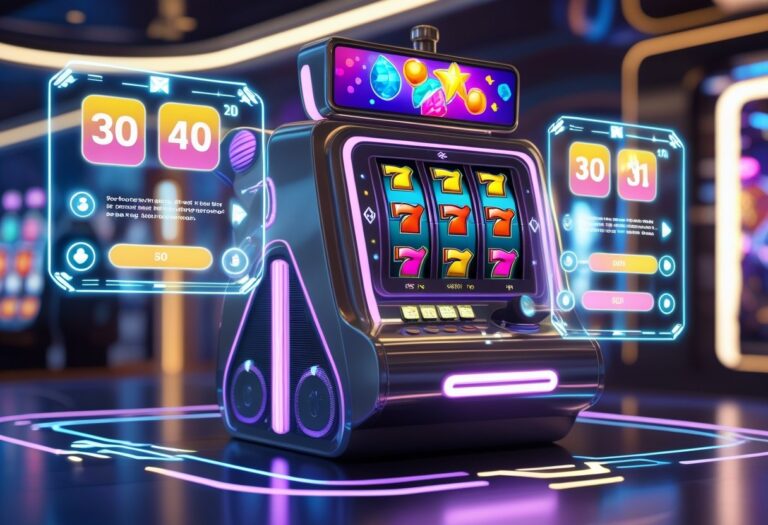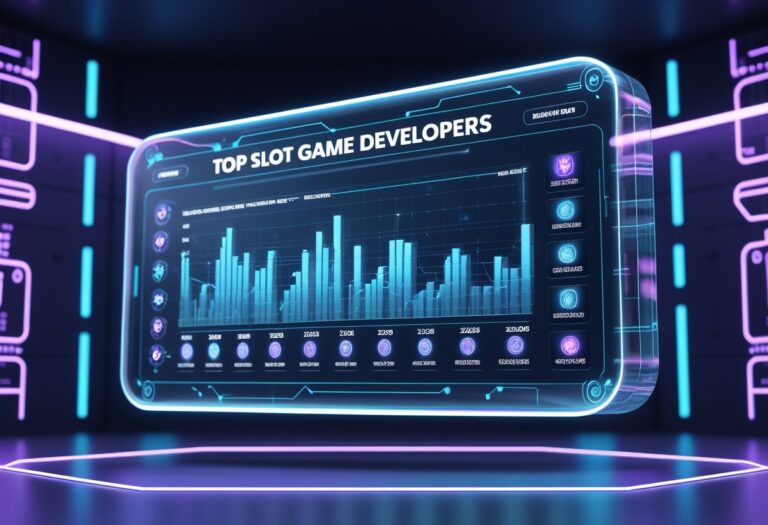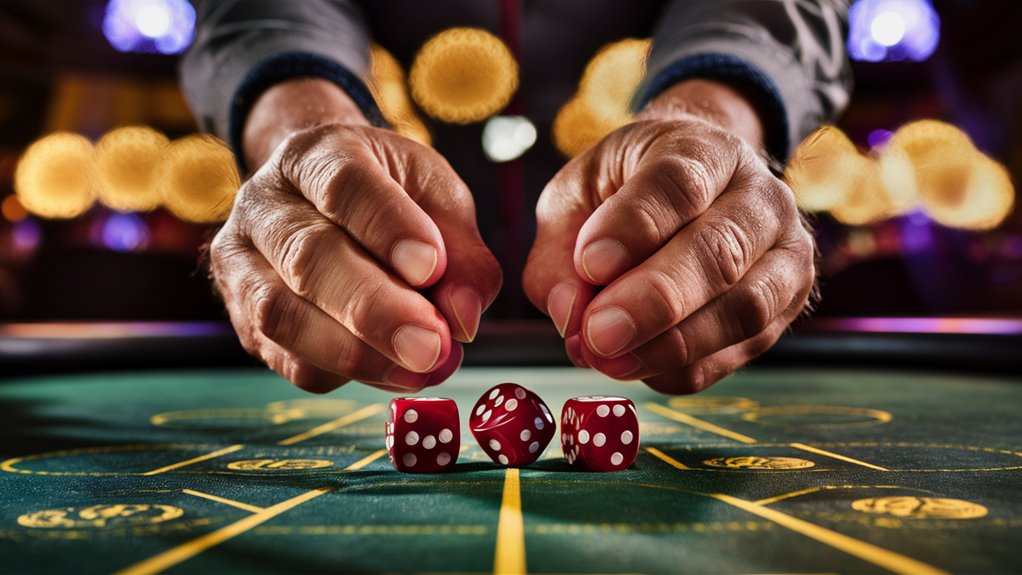
Why People Love Risk: A Gambling View
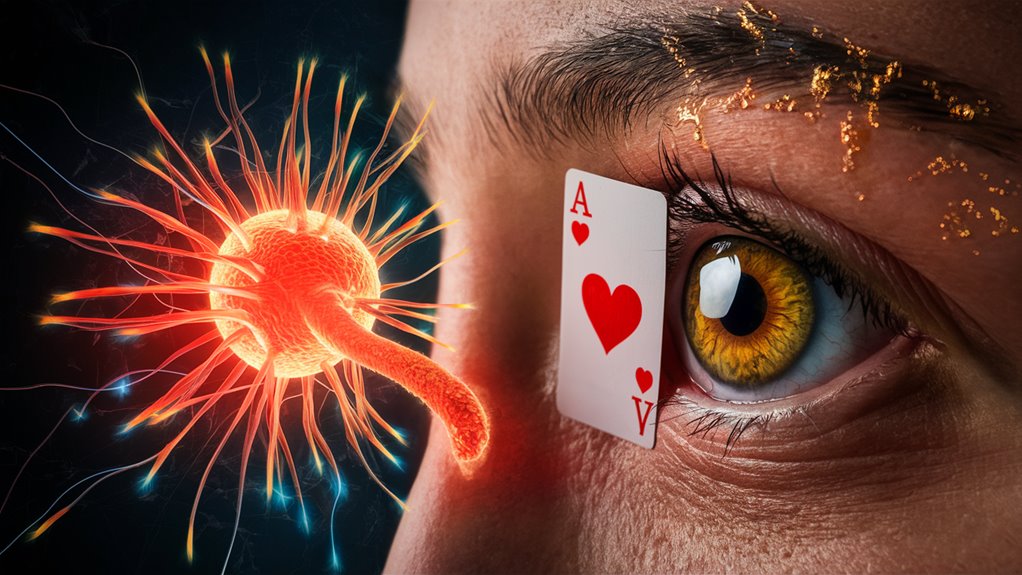
The Brain Science Behind Loving Gambling
The brain’s way of seeing gambling and risk sets off big changes inside. When bets are made, the brain gives out lots of dopamine, way more than usual. The joy part of our brain turns on a lot when we gamble, making us feel great and want to take more risks. 먹튀커뮤니티
How Risk-Taking Started Long Ago
Our past kin had to take risks to live, making deep paths in our brains that gambling uses now. This old change works with hit-and-miss rewards to make strong loops of reward, pulling us into gambling.
Social and Culture Bump
Numbers show about 85% of people in the US have gambled, showing it’s a big deal. Your place in groups and culture push us to take risks. Gambling being seen as normal in many places makes us want to join in more.
How Tech Changed Gambling
New tech has changed how we can take risks. Online gambling sites use our old brain paths well, making it easier and more fun to bet than ever. The mix of quick fun, big rewards and clever systems draws us to gamble online a lot.
What Happens in the Brain
The brain’s way of dealing with gambling is complex and involves:
- Making dopamine
- Turning on reward paths
- Lighting up joy areas
- Thinking about risks and rewards
The Thoughts in Gambling
Core Parts of Gambling
Looking into gambling shows many mental leans that push us toward risk.
The brain lets out dopamine when we think about possible rewards, making strong loops that keep gambling going.
The near-win effect fires off rewards in our brain almost like real wins, keeping us betting.
How We Act and Think about Risk
Chasing losses ties to theories where losing hits harder than winning. Random rewards build strong habits, while the unsure nature of wins hooks us like the draws of social media.
Big Mental Parts in Gambling
Mental Twists
Three main mind tricks drive gambling:
- The illusion of control: The false idea that we can shape random results
- Gambler’s false thought: A wrong idea about chances
- Memory leans: Remembering wins more than losses
Brain Reward Roads
The dance between mind leans and reward roads in the brain make us seek risks.
These parts show why we take risks that seem odd, knowing the odds.
The mix of brain actions and mind parts make us keep gambling.
By really digging into these habits, clear links show between our thoughts, brain doings, and choices in gambling, giving key ideas into why we take risks and might get hooked.
Brain Dope During Risk
Dope in the Brain in Risk Times
Key brain messengers run our complex brain doings during risk.
Dopamine goes high in gambling, making a deep reward system that makes us take risks.
Tests show even near-wins make dopamine go up, helping make gambling so pulling.
Brain Stuff and Choosing
Other brain stuff work together in making risky choices.
These key brain bits up how awake we are and make us feel great, really seen in big bets.
The joy bit of the brain is all lit up when we gamble or take risks.
Brain Spots at Work When Risking
Brain scans show clear ways the brain acts in risk moments.
The thought control part is less busy when we risk, while the feeling bit is busier, often making us pick feels over thoughts.
This brain play makes big changes in how we judge risks.
Big Brain Spots in Risk
- Joy response place: Main joy spot
- Thought control: Runs smart choices
- Feeling bit: Works on feels
- Reward roads: Dopamine roads light up
Social Spot and Betting
How Social Spot Touches Betting and Risk
Knowing Social-Driven Betting
Brain messengers in gambling play big in group spots and betting acts in groups.
Those who keep winning get a higher social spot while losing a lot can drop how others see them.
This push makes us pick how we will bet later.
Big Bets and Being Top Dog
Big bets show off social power in many parts.
People making big bets get lots of looks and head nods in groups, linking how much they bet to how cool they seem.
This link goes beyond just winning or losing, setting off circles of social-driven risks.
Being Sure in Groups and Gambling Turns
Research finds that 73% of regular bettors feel more sure in groups when winning a lot, while 62% pull back after bad losses. This link between place in the group and risk goes past just the gambling spots to:
- Stock market play
- Sports betting
- Poker nights
- Online gambling groups
The tie between where you stand in the group and taking risks speaks louder than just money outcomes, showing the deep role of how we act with others on our betting picks.
Why We Risk in Groups
Thinking about our spot in the group drives our betting a lot more than just the chance of winning money. This makes clear paths in:
- How big we bet
- How much risk we can handle
- How often we gamble
- How we fit in the group
These truths show how deeply where we stand in our crew shapes how we gamble and think about risks in many betting scenes.
How Risk Seeking Grows
The Old Roots of Risk in Us
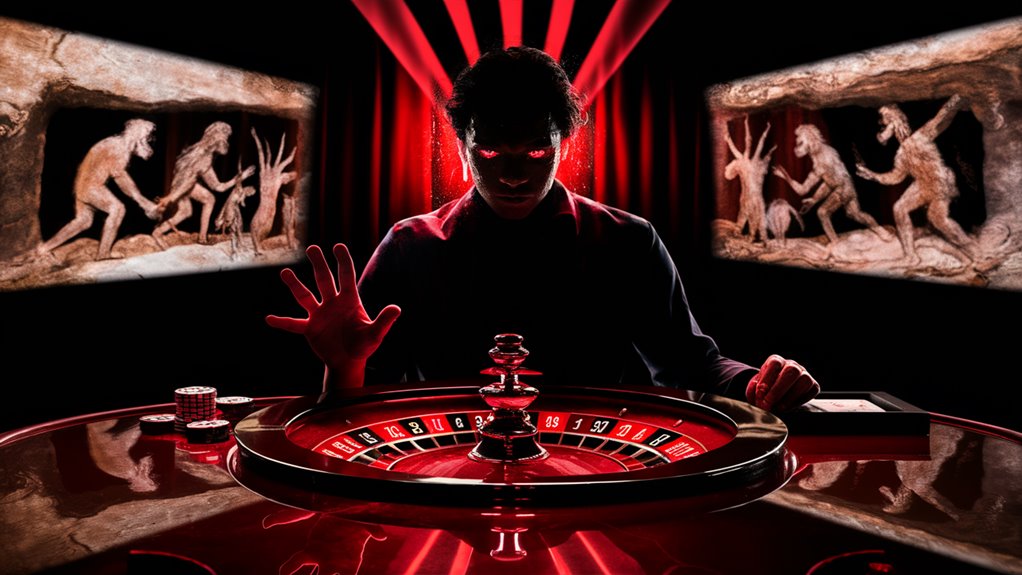
Way Back Starts of Risk Judging
Ancient people needing to live had to risk a lot, from chasing wild, mean animals to going into new lands.
This old need shapes how we now see risk and make choices in all different spots, like today’s gambling and money moves.
Brain Ways of Handling Risk
Our brain’s happy system works through deep dopamine paths that not only light up when we win but also when we think we might win soon.
This brain system of risk and reward started from our far-back kin choosing between risky hunting and safer gathering, making the main paths we still use today.
Today’s Uses and Hard Parts
Acting risky now can really help, mostly in new business moves, money plans, and new tech.
But, modern gambling spots trick these old brain paths without real life help. These places use the brain ways made for way different old tests, making new hard spots in how we choose now.
Smart Risk Picking
Smart risking keeps pushing us to big moves by balancing possible wins with ok losses.
Knowing these deep set ways of acting helps us see both the good and bad of risk in today’s world, from starting up things to the money markets.
When Things Don’t Match
Casino games and like spots use our old brain paths made for life or death picks back then.
This bad fit between old brain ways and modern gambling spots makes real hard parts for smart risk handling in our world now.
Culture Changes Gambling
How Culture Changes Gambling All Over
How Different Places See Gambling
Mindsets on gambling change a lot across big world spots, shaped by what each place values and old ways.
East Asian gambling love is big, with Macau’s money from games way more than Las Vegas by 500%.
On the other hand, Islamic lands really say no to gambling, calling it bad in their faith rules.
Western Gambling Ways and Numbers
West gambling ways try to balance free will with keeping everyone ok.
Numbers show that 85% of people in the US have tried gambling, while European gambling numbers are usually between 40-60% of grown-ups.
Old and Native Gambling Ways
Old gambling ways often mix game playing into big group rites, seeing them as ways to touch the spirit world.
Native American gambling ways long played big parts in their groups, like fixing fights and handing out stuff.
Today’s rules show these deep differences, with Singapore’s rules very different from Nevada’s free game ways.
Rules on Games and Culture Hits
Changes in how we see gambling shape rules all over, making different ways to handle risks and public getting in.
These differences shape how different lands deal with game playing, grow the game business, and keep their people safe.
Online Game Changes
How Online Games Have Changed
Online Spots Grow and Market Moves
Online game spots have changed old betting ways, taking 11% of the whole world game market by 2010.
The business made a huge $66.7 billion in 2020, pushed by clever mind studies and AI paths that make game times special for each player’s likes and betting ways.
Games on Phones Change Things
The start of phone game tech has changed how we bet, with 70% of online bets now done on phones.
Easy to get to, with one-tap bet systems and smooth online paying has cut down the usual hard parts of old gambling, changing how we join in on betting spots.
Being Social and How We Join In
Social parts of games have changed the betting view, turning old lone game times into group fun times.
Top new things like live video, chatting systems, and virtual win ways make joining in like playing social games.
Number checks show people who use social parts stay on platforms 43% longer and start 27% more bets. Dust & Surge Bets: Spurring Coarse Observations Into Swift, Overarching Impact
Web Money and New Money Ways
Web money use in online game markets has grown 64% each year since 2018.
This web money game change brings new mind ways to think about money risks, deeply changing how players see and handle their betting.
Top Numbers
- Market Share: 11% global market
- Money Made: $66.7 billion (2020)
- Phone Use: 70% of all bets
- Social Fun: 43% more time on platforms
- Web Money Rise: 64% more each year
